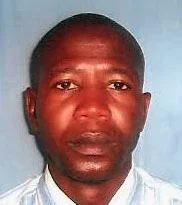Afolabi Gambari
According to a data released by the National Primary Health Care Development Agency (NPHCDA) on November 16 2023, with regard to compliance on Human Papillomavirus Vaccination (HPV) across Nigeria, Lagos State stood at 45% vaccination for 9-year-olds and mere 28% for 10 to 14-year-olds.
The foregoing statistics had aroused curiosity, if not paradox, considering that the awareness campaign in Lagos had been at its highest in recent times and much had been expected with regard to result, especially recalling the huge success that Covid-19 vaccination achieved in the state. But experts had downplayed the rather disturbing development, saying it was only a matter of time for Lagos State to take its rightful place on the log as efforts were being effected to get the state government and other relevant stakeholders, especially the media, involved in the war to rid young girls of future cervical cancer.
Some eleven months down the line, Lagos State has, as expected, taken the leading role in preventing cervical cancer in pupils aged 9 to 14 years in primary and secondary schools in Nigeria. The state aims at reaching one million girls by December 31 this year, a feat that would leave the 35 other states in the country trailing.
Although Lagos State had commenced the HPV immunization campaign on October 30 last year, providing vaccine free of charge to girls aged 9 to 14 years, not many of the targeted girls were immediately reached, due to some parents refusing to grant the required permission to the health officials to have their wards vaccinated.
After persistent campaigns and sensitization were embarked on to get the minds of disbelieving parents disabused, the state government then routinised the HPV vaccine into other regular Nigerian vaccination schedule for children and adolescents to ease compliance. Nonetheless, more parents continued to be sensitized as to the importance of the vaccine to the future well-being of their children.
The success currently attained in Lagos State was grounded in the efficient planning that commenced way back in June last year when the government convened a team of experts to discuss the state’s preparedness for a smooth roll-out of the HPV campaign, whereupon strategies and logistics were also properly addressed with specific focus on schools in government facilities in all the 20 local government areas and wards, including all the 37 local council development areas of the state. The demography of the girls in the state between the ages of 9 and 14 years was also highlighted, at the end of which a total of 1,062,427 girls was arrived at.
Despite the initial difficulty, however, the state still accessed 478,528 girls with the vaccine within three months of the roll-out in October last year. Interestingly, in areas like Epe, Eti-Osa and Ibeju-Lekki where a large number of people are educated and enlightened, the vaccination recorded low patronage due to rumour of negativity being weaved around the vaccine by the elite in the areas; such that only 8,742 girls complied out of the targeted 33,920. This led to the state government swiftly embarking on another round of massive awareness campaign aimed at countering the rumour; followed by rigorous engagements with schools, religious bodies and influential members of the communities to improve their knowledge of cervical cancer and the need for the HPV vaccine, which has since cleared the route to attaining the one million vaccination target for 2024.
The role of the media in helping to diffuse the misconceptions arising from disinformation, misinformation and malinfornation around the HPV has been highlighted at various and it is just as well that the media have also embraced the challenge in the task to save the future of Nigeria in this regard.
The HPV is responsible for about 95% of cervical cancer. Although 90% of infections clear within two years, some infections can continue for as long as 20 years, leading to full blown cervical cancer. It is mainly for the foregoing grim reality that the school age girls are currently targeted. The federal government target aims to vaccinate 16.6 million girls aged 9 to 14 by the end of 2025. Ultimately, the effort, fully supported by World Health Organisation (WHO), UNICEF and Gavi, is expected to significantly reduce cervical cancer cases and save the lives of Nigerian women.







